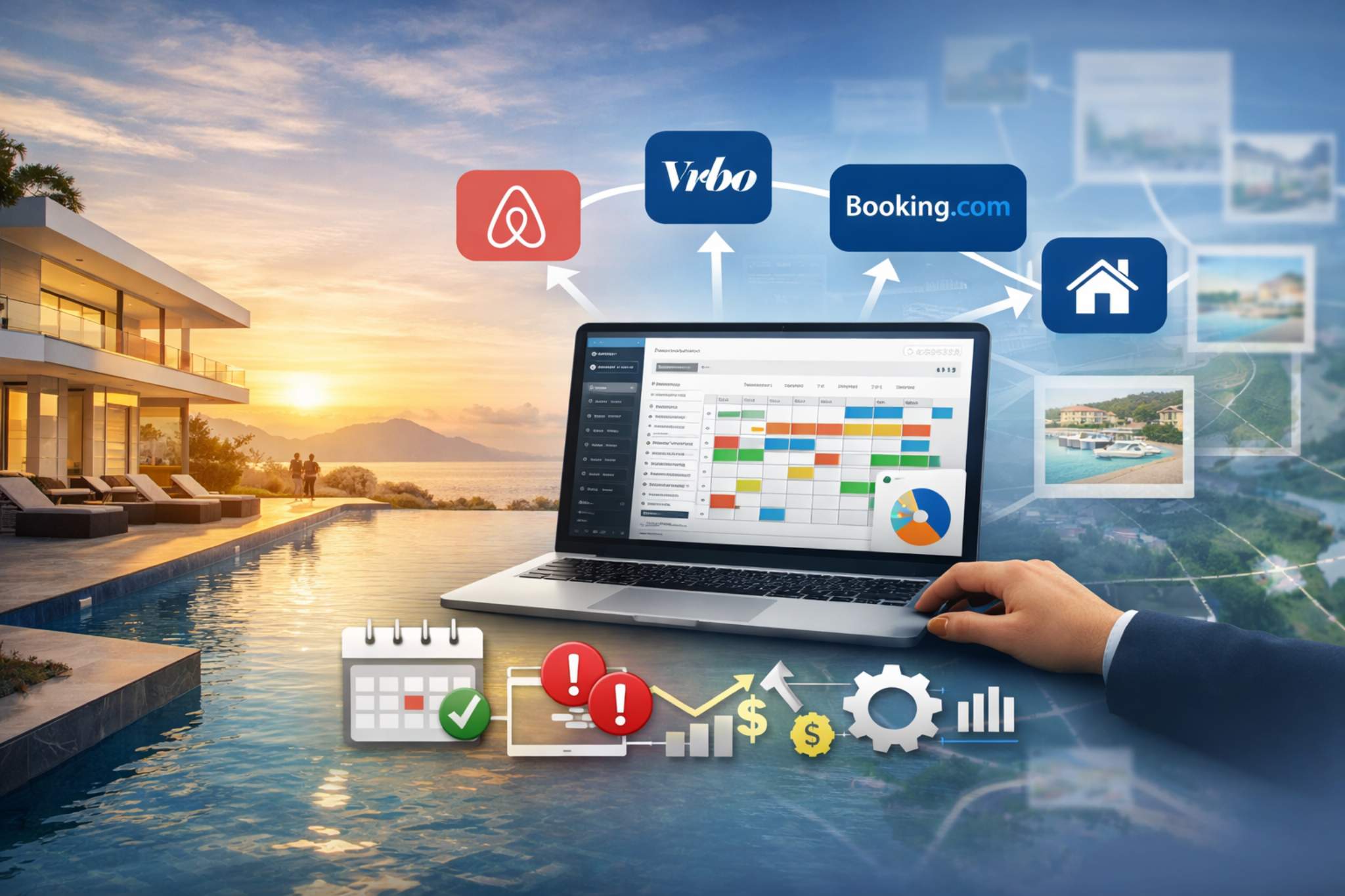Even though Global Distribution Systems (GDS) have been prevalent since their inception around the 1960s, they are not as equally understood or utilized in today’s travel industry. GDS was at the forefront of the digital revolution in the travel market, producing a way for brick and mortar travel agencies to instantly connect with accommodation providers.
Additional internet solutions, such as channel managers and online travel agencies (OTA), have surged in popularity as of late, but it is important to note that GDS is still a working and viable option for hotels today. But before we dig into the details on the benefits of using GDS, let’s make sure that we get on the same page.
What is GDS?
Quite simply, it is a selling channel for travel agencies, airlines, hotels, and car rental providers. A great way to visualize how this system works is imagining a conduit; a GDS takes a request from an agency and matches it with options that could potentially work best. The four main GDSs include Amadeus, Galileo, Sabre, and Worldspan. Businesses have the option to “subscribe” or have access to one of them or even all of them. There are some smaller GDS that focus primarily on a regional area as well as GDS that target a certain market in order to offer specialized services.
As the industry has developed and new technologies have emerged, GDSs have become more sophisticated in order to keep up with the market’s expectations. However, since they are not the latest or most contemporary digital solutions in the travel industry, it is not surprising that the potential of GDS has yet to be unlocked for some businesses. Even though GDSs have been referred to as legacies in the travel industry, they are still relevant and highly engaged in the travel market.
1. “Offline” as well as Online

GDS was originally made in order to simplify and streamline the reservation process, making booking easier, as well as more time-efficient, for travel agencies located around the world. OTAs were not an option yet, so GDS was the only resource for connecting with travel industry providers and companies online for quite some time.
In other words, GDS considers what OTAs do not: those who are not “online,” or rather, the brick and mortar travel agencies that are not completely housed online. GDS offers a way to contact and include agencies that would not normally be easily found through third-party distribution channels. Therefore, with the added advantage of OTAs and channel managers in today’s society, GDS takes into account the travel agencies that do not actively participate online, opening up more opportunities for you to consider.
2. Great for Promotional Campaigns

The Marketing Information Data Transfer (MIDT), a resource that most OTAs refer to for current information on guest travel behavior, is based on GDS. MIDT mainly looks at the data that GDS brings in, and it presents this information for travel industry companies to analyze. Since GDS is not only concerned with hotels or airlines separately, anyone who has access to the data that GDS collects will know far more information about guests than the hotel reservation they made. Travel plans, airline bookings, car rental packages–whatever decision a customer makes and adds to their travel persona is information that you can use to personalize your promotional campaigns.
3. Another Avenue to Pursue

GDS are an effective and established option for those in the travel industry; why turn down an opportunity to reach more potential customers? As of 2018, GDS is still offering competitive results; the distribution share per channel data reveals that GDS performs almost just as well as OTAs. This in and of itself is enough of a reason to add GDS to your list of channels to promote your hotel.
In the ever-changing, instant updating world of the travel industry, GDS has proven to consistently keep up with and automatically update information as it changes. Its design allows for a more comprehensive view of all of the options available, letting more agencies book your hotel and your services. GDS is also more corporate-minded, meaning that they are able to view more prospects as they are not focused mainly on the customer-side of things.
What is the future of GDS?
Depending on what you read or who you talk to in the travel industry, GDS may or may not be considered a resource that will last as new technologies are developed. While GDS could be labeled as more “traditional,” it still seems to get the job done quickly and effectively. With property management systems like ours, you should easily be able to integrate all of your booking information into any, if not all, of the GDS that you want. If GDS continues to take every opportunity to update and upgrade itself, then it will stay as a viable option for some time.







_-_A_Complete_Guide.png)










%2Bfor%2BHotel%2BChains-web.jpg)
